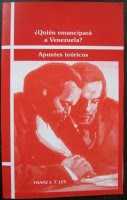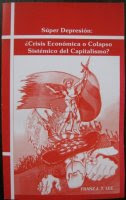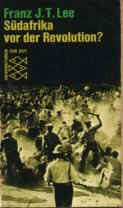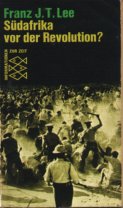Relations with Venezuela Disputed in Colombian Presidential Campaigns and OAS
By James Suggett - Venezuelanalysis.com
* Colombia-Venezuela Relations
Mérida, May 14th 2010 (Venezuelanalysis.com) - Colombia’s tense relations with Venezuela have been a hot-button issue in Colombia’s presidential race. This week, a dispute occurred in the Organization of American States (OAS), with Colombia accusing Venezuelan President Hugo Chavez of “intervention,” and Venezuela responding that it is being pulled onto the Colombian campaign trail against its will.
Chavez recently referred to Colombian presidential candidate Juan Manuel Santos, the former defense minister who resigned last August, as a “military threat to the region.”
The comment alluded to Colombia’s March 2008 bombing of a guerrilla camp in Ecuador, and its October 2009 military accord that allowed the U.S. to increase its troop presence and spy operations in the region from seven Colombian bases. Venezuela responded by severing diplomatic ties.
Chavez expressed his desire to “turn the page” and restore diplomatic relations with Colombia, but said this will be “very difficult, exceedingly difficult” and that bilateral commerce may be severed if Santos is elected.
During an OAS conference in Washington, D.C., Colombian Foreign Minister Jaime Bermudez expressed the Colombian government’s “indignation in the face of any intervention in our affairs,” and accused Venezuela of impeding the process of regional integration.
Later, OAS General Secretary Miguel Insulza commented, “When officials in one country talk about the elections in another country it is not a good practice... I don’t call that intervention, but it is a bad practice.”
Venezuela’s ambassador to the OAS, Roy Chaderton, rejected the critiques. “Venezuela rejects these attempts to artificially drag it into the Colombian electoral competition and expresses its greatest respect for the decision that the Colombian people make in the elections on May 30,” he said.
Chaderton also criticized Insulza for speaking on matters that “are not of his concern,” and noted the “coincidence” between Insulza’s comments and those of the corporate, right-wing media in Colombia.
Chavez said he had the right to comment on the Colombian election, since the candidates had commented about Venezuela. “Some candidates in Colombia have based their campaigns on me. They should not meddle with me, and if they do, I have the right to respond to them,” he said.
Chavez also clarified his position on the Colombian election. “Be it from the left or the right, I do not have a preference for either of them,” he said. “The one the Colombian people choose should win.”
In recent weeks the Colombian press has grilled both leading presidential candidates on relations with Venezuela.
Former Bogotá Mayor Antanas Mockus, the opposition candidate from the liberal Green Party, said he would pursue “good relations” with Venezuela and “recognize and deepen interdependencies,” but did not specify whether he supports Chavez’s anti-imperialism or his push toward 21st Century Socialism.
Both Santos and Mockus disapproved of Chavez’s comments on the Colombian election, but Mockus doubted that the impact of Chavez’s comments would be significant.
“I share with the general secretary of the OAS the perception that the impact is not very great,” Mockus said. “However, the intervention bothers me and annoys all Colombians. I think that Venezuelans would not like it if the president of Colombia or of another neighboring country, like President Lula [of Brazil] were to start to intervene, to try to veto one of the candidates,” he said.
In early May, Santos said he is willing to “dialogue” with Venezuela, and said he will “never fire on Venezuela and Ecuador,” an apparent attempt to soften the fact that he ordered the March 2008 bombing in Ecuador and later accused Venezuela of financing the rebels.
The Ecuadoran Attorney General’s Office announced in April that it will pursue Santos’s extradition after a district judge issued an arrest warrant for Santos on the grounds that he ordered the bombing.
VENEZUELANALYSIS.COM
http://venezuelanalysis.com/news/5366
By James Suggett - Venezuelanalysis.com
* Colombia-Venezuela Relations
Mérida, May 14th 2010 (Venezuelanalysis.com) - Colombia’s tense relations with Venezuela have been a hot-button issue in Colombia’s presidential race. This week, a dispute occurred in the Organization of American States (OAS), with Colombia accusing Venezuelan President Hugo Chavez of “intervention,” and Venezuela responding that it is being pulled onto the Colombian campaign trail against its will.
Chavez recently referred to Colombian presidential candidate Juan Manuel Santos, the former defense minister who resigned last August, as a “military threat to the region.”
The comment alluded to Colombia’s March 2008 bombing of a guerrilla camp in Ecuador, and its October 2009 military accord that allowed the U.S. to increase its troop presence and spy operations in the region from seven Colombian bases. Venezuela responded by severing diplomatic ties.
Chavez expressed his desire to “turn the page” and restore diplomatic relations with Colombia, but said this will be “very difficult, exceedingly difficult” and that bilateral commerce may be severed if Santos is elected.
During an OAS conference in Washington, D.C., Colombian Foreign Minister Jaime Bermudez expressed the Colombian government’s “indignation in the face of any intervention in our affairs,” and accused Venezuela of impeding the process of regional integration.
Later, OAS General Secretary Miguel Insulza commented, “When officials in one country talk about the elections in another country it is not a good practice... I don’t call that intervention, but it is a bad practice.”
Venezuela’s ambassador to the OAS, Roy Chaderton, rejected the critiques. “Venezuela rejects these attempts to artificially drag it into the Colombian electoral competition and expresses its greatest respect for the decision that the Colombian people make in the elections on May 30,” he said.
Chaderton also criticized Insulza for speaking on matters that “are not of his concern,” and noted the “coincidence” between Insulza’s comments and those of the corporate, right-wing media in Colombia.
Chavez said he had the right to comment on the Colombian election, since the candidates had commented about Venezuela. “Some candidates in Colombia have based their campaigns on me. They should not meddle with me, and if they do, I have the right to respond to them,” he said.
Chavez also clarified his position on the Colombian election. “Be it from the left or the right, I do not have a preference for either of them,” he said. “The one the Colombian people choose should win.”
In recent weeks the Colombian press has grilled both leading presidential candidates on relations with Venezuela.
Former Bogotá Mayor Antanas Mockus, the opposition candidate from the liberal Green Party, said he would pursue “good relations” with Venezuela and “recognize and deepen interdependencies,” but did not specify whether he supports Chavez’s anti-imperialism or his push toward 21st Century Socialism.
Both Santos and Mockus disapproved of Chavez’s comments on the Colombian election, but Mockus doubted that the impact of Chavez’s comments would be significant.
“I share with the general secretary of the OAS the perception that the impact is not very great,” Mockus said. “However, the intervention bothers me and annoys all Colombians. I think that Venezuelans would not like it if the president of Colombia or of another neighboring country, like President Lula [of Brazil] were to start to intervene, to try to veto one of the candidates,” he said.
In early May, Santos said he is willing to “dialogue” with Venezuela, and said he will “never fire on Venezuela and Ecuador,” an apparent attempt to soften the fact that he ordered the March 2008 bombing in Ecuador and later accused Venezuela of financing the rebels.
The Ecuadoran Attorney General’s Office announced in April that it will pursue Santos’s extradition after a district judge issued an arrest warrant for Santos on the grounds that he ordered the bombing.
VENEZUELANALYSIS.COM
http://venezuelanalysis.com/news/5366













No comments:
Post a Comment